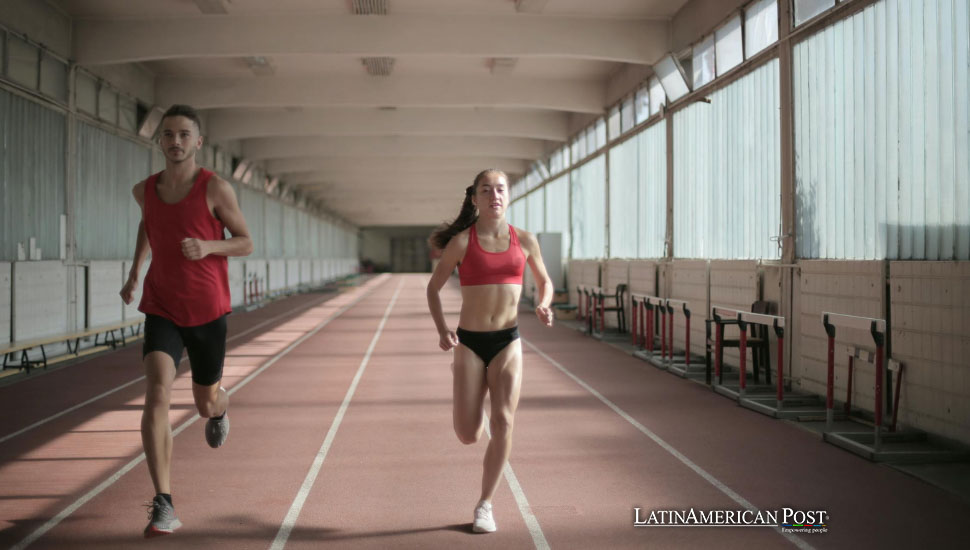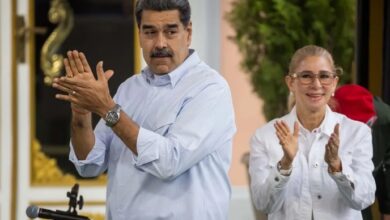Venezuela’s Economic Crisis Hinders Athlete Development and Preparation

Venezuela’s economic turmoil significantly hampers its athletes’ preparation and competitiveness, leaving the nation disadvantaged compared to countries with stable economies. The government’s focus on sanctions overshadows broader issues like corruption and infrastructure deficiencies.
Venezuela’s ongoing economic crisis has severely damaged its sports programs, putting the country at a disadvantage compared to nations with more robust financial support. Amid this critical scenario, President Nicolás Maduro’s government attributes part of the problem to international sanctions, especially those imposed by the United States.
High-performance coach Luis Salas told EFE that a country without a strong economy struggles to “compete against the great powers,” which have more resources to invest in coaches, infrastructure, and sectors like medicine and technology. “Countries with certain weaknesses will not be able to enjoy the benefits that monetary resources guarantee,” said the former Director of High Performance at the Ministry of Youth and Sports.
Salas believes that Venezuela and Cuba share “a similar situation”: both are countries with “battered economies” and “lack the best infrastructure.” Although there has been some investment in Venezuela’s sports facilities, much more is needed to “compete with the great powers.”
Impact of Sanctions and Economic Decline
According to Salas, the sanctions have led to significant financial losses for the Ministry of Sports, resulting in cuts to the maintenance and development of sports facilities. The Venezuelan government’s Observatory Against Blockade (OVA) reported that the country’s dollar receipts fell from $39 billion in 2014 to $743 million in 2020, meaning Venezuela lost 99 of every 100 dollars it received over seven years.
Despite this, experts argue that while sanctions have exacerbated the crisis, the root causes lie in corruption, mismanagement, and economic controls. Ecoanalítica, a Venezuelan consultancy firm, noted that the Venezuelan economy contracted by 75% from 2014 to 2020, with minor growth in subsequent years: 1% in 2021, 8% in 2022, and 1% last year.
Salas emphasizes that human resources are a priority for Venezuela to improve its global sports standing. “Venezuela has a good population to produce a better sample,” he says, suggesting that the country could achieve a higher global ranking with better investment in infrastructure and human resources, including physical education teachers and coaches.
The Need for Human Resource Development
Salas points out that one of the leading indicators of a developed country is the quantity and quality of physical education teachers, who can identify and nurture potential talents in schools for sports clubs. However, there is a significant deficit of about 60,000 physical education teachers in Venezuela, a figure that has worsened over the past two decades.
Organizations, NGOs, and opposition leaders claim that the shortage of educators and other professionals is a direct consequence of Venezuelans’ mass migration. According to the Interagency Coordination Platform for Refugees and Migrants (R4V), around 7.77 million Venezuelans have left the country, though the government claims the number is less than 2 million.
The exact number of coaches in Venezuela remains to be discovered due to a lack of comprehensive data, except for high-performance coaches, who number fewer than 400, according to Salas. He advocates for creating an organization to represent the coaching profession, maintain records, identify needs, and formalize qualifications to ensure the safety and development of athletes.
Venezuela’s Performance at the 2020 Tokyo Olympics
Venezuela participated in the 2020 Summer Olympics in Tokyo, postponed to 2021 due to the COVID-19 pandemic. Despite the economic challenges, the country performed best in Olympic history, winning four medals, including a gold. Triple jumper Yulimar Rojas broke the women’s world record with a 15.67-meter jump. Veteran freestyle BMX cyclist Daniel Dhers secured a silver medal in the sport’s Olympic debut. Julio Mayora and Keydomar Vallenilla won additional silver medals in weightlifting, with all Venezuelan weightlifters finishing in the top eight.
However, not all athletes met expectations. Road cyclist Orluis Aular led much of his race but had to retire shortly before the finish. Boxing and fencing, which had been strong in previous Olympics, underperformed, with notable athletes like 2016 boxing silver medalist Yoel Finol and 2012 fencing gold medalist Rubén Limardo losing their first matches.
Challenges and Prospects for Venezuelan Sports
The economic difficulties profoundly impact the preparation and performance of Venezuelan athletes. Sanctions, while significant, are just one part of a broader crisis that includes deep-seated corruption and inefficient management.
The decline in dollar revenue has severely restricted the funding available for sports infrastructure and development programs. For example, in May, Venezuela reported losses exceeding $2 billion in its first-quarter revenues in 2024 due to sanctions, despite 88% of the measured days falling within a period when the sanctions were suspended.
Investment in sports infrastructure and human resources is crucial for Venezuela to enhance its global sports performance. With better funding and management, the country could leverage its significant population to identify and develop athletic talent.
The potential for improvement is evident. Despite the current challenges, Venezuelan athletes have shown resilience and excellence on the global stage, as demonstrated by their performance in the Tokyo Olympics. Continued support and investment in sports can help Venezuela reclaim and surpass its previous athletic achievements.
Addressing the Human Resource Deficit
Salas underscores the critical need for infrastructure and human resources investment to improve Venezuela’s standing in international sports. He notes that physical education teachers are pivotal in identifying young talent and fostering their development. However, the country faces a shortfall of approximately 60,000 physical education teachers, highlighting the urgent need for more educators to support the nation’s youth.
The migration crisis has exacerbated the shortage of qualified professionals across various sectors, including sports. With millions of Venezuelans having left the country in recent years, there is a significant brain drain that affects not only education but also the broader sports ecosystem. Developing a robust educational and training framework for coaches and teachers is essential to bridge this gap.
Creating an entity to oversee the training and certification of coaches would standardize the profession and ensure that athletes receive high-quality guidance. Such an organization could also maintain a coaches registry, identify gaps and needs, and work to formalize the qualifications necessary for coaching, thereby improving the overall quality of sports training in Venezuela.
The economic crisis in Venezuela presents significant challenges for the development and preparation of athletes. While international sanctions have played a role in exacerbating these difficulties, underlying issues such as corruption and mismanagement are critical factors that need to be addressed.
Investing in infrastructure and human resources is paramount for Venezuela to enhance its global sports performance. The country’s recent success at the Tokyo Olympics demonstrates the potential of its athletes despite the challenging circumstances. With better support systems and strategic investments, Venezuela can nurture its athletic talent and improve its standing in the international sports arena.
The path to recovery and growth in Venezuelan sports lies in addressing both the immediate impacts of the economic crisis and the long-term structural issues that hinder development. By focusing on education, training, and infrastructure, Venezuela can create a sustainable environment for its athletes to thrive and succeed on the world stage.




